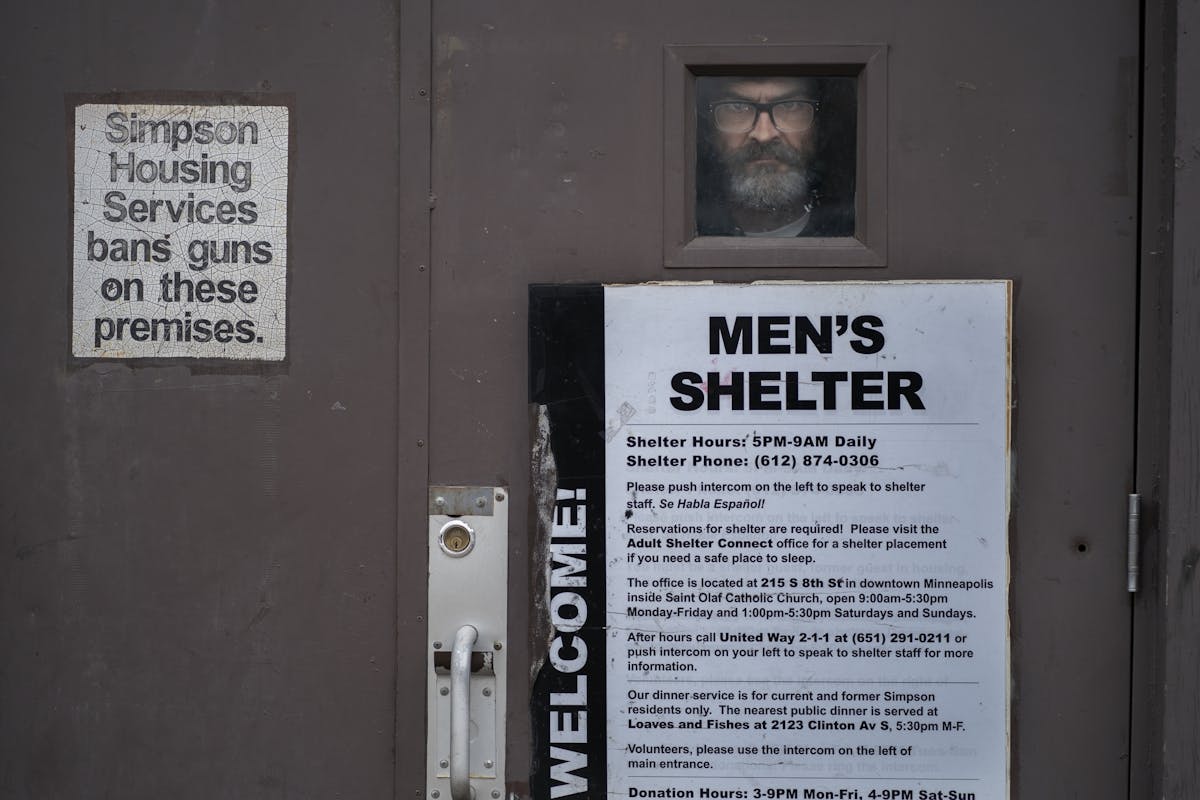Minnesota homeless shelters and organizations are unprepared for the COVID-19 pandemic and urge policymakers to increase state aid, predicting the virus will "spread like wildfire" through their shelters.
Despite new emergency coronavirus state aid, leaders of homeless organizations from Duluth to Rochester said Thursday in a virtual news conference that they need more money and resources, such as access to hotel rooms to house people and sports arenas to serve meals. They also urged the state to increase rental assistance to prevent people from becoming homeless during the economic downturn.
Tim Marx, CEO of Catholic Charities of St. Paul and Minneapolis, said the outbreak has cost the organization at least $1 million more a month for extra cleaning, supplies, staffing and food.
On Friday, Ramsey County will open a temporary quarantine facility at Mary Hall, leased from Catholic Charities in St. Paul.
"The situation is becoming even more dire," Marx said, adding that homeless shelters are essentially field hospitals for the poor. "We need more support and we need more resources, and we urgently need them now."
While most Minnesotans heed the state's stay at home order, the state's record high number of homeless people don't have a home to hunker down in, with some left to live in their cars, in camps or in storage buildings. At shelters, social distancing rules aren't possible with bunk beds and floor mats bunched together. About 80% of homeless adults have chronic health conditions, mental illness, or substance abuse issues, according to new research released Wednesday from St. Paul-based Wilder Research, factors which make them more vulnerable during the COVID-19 outbreak.
In northeast Minneapolis, Monica Nilsson, shelter director of Strong Tower Parish and Elim Church Shelters, said men and women — some of whom are sick — must sleep on rows of mats two-feet apart.
In Rochester, the Dorothy Day House closed because of the outbreak. Olmsted County is now using a hall of the Mayo Civic Center to house people and keep them six-feet apart, as well as contracting with hotel rooms for 15 high-risk people, Commissioner Sheila Kiscaden said.
And in Duluth, the CHUM Center and Emergency Shelter, St. Louis County's largest emergency shelter, has stepped up cleaning and started health screenings, buying thermometers to take each person's temperature, said Lee Stuart, the executive director. She said about 140 people stayed at the shelter and drop-in center Wednesday while about 150 others in Duluth remain unsheltered. Stuart said CHUM would need $70,000 a month to open another shelter and $120,000 a month to open a 24/7 quarantine facility.
In Minneapolis, Simpson Housing Services extended its shelter hours to 24/7, but executive director Steve Horsfield said more needs to be done.
Once a shelter has a case of COVID-19, he said, "it's going to spread like wildfire."
Kelly Smith • 612-673-4141

Want to share info with the Star Tribune? How to do it securely

'Safe recovery sites' would offer syringes, naloxone and more to people using drugs. The plan could be in peril.
New Minnesota GOP leaders seek peace with party's anti-establishment wing

Who is Republican Lisa Demuth, Minnesota's first House speaker of color?

